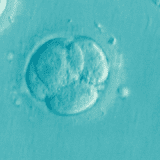Before embarking on the beautiful journey of pregnancy, it is important to prepare your body and mind for the incredible experience ahead. By adopting a few healthy habits, you can lay a strong foundation for a healthy and successful pregnancy. In this article, we will explore six essential habits that you should incorporate into your lifestyle before planning for pregnancy.
1. Eating a Nutritious Diet:
One of the most important habits to adopt before getting pregnant is maintaining a nutritious diet. A well-balanced diet rich in essential nutrients such as folic acid, iron, and calcium is crucial for supporting fertility and promoting a healthy pregnancy. Include plenty of fruits, vegetables, whole grains, lean proteins, and dairy products in your daily meals. Consult with a healthcare provider to ensure you are meeting your specific nutritional needs.
2. Regular Exercise Routine:
Regular physical activity is not only beneficial for your overall health but also plays a vital role in preparing your body for pregnancy. Engaging in regular exercise helps with weight management, improves fertility, and boosts energy levels during pregnancy. Choose exercises that are safe and suitable for women planning to conceive, such as walking, swimming, and prenatal yoga. Remember to listen to your body and avoid overexertion.
3. Getting Sufficient Sleep:
Establishing a regular sleep schedule and prioritizing quality sleep is essential for reproductive health, hormonal balance, and overall well-being. Aim for 7-9 hours of sleep each night and create a relaxing bedtime routine to promote better sleep. Adequate rest will help you prepare both physically and mentally for the journey of pregnancy.
4. Maintaining a Healthy Weight:
Your weight plays a significant role in fertility and pregnancy. Being either overweight or underweight can affect your chances of conceiving and increase the risk of complications during pregnancy. It is important to achieve a healthy weight before planning for pregnancy. Focus on balanced eating, portion control, and regular exercise to maintain a healthy weight.
5. Consulting with a Healthcare Provider:
Seeking professional advice from a healthcare provider is crucial before starting or modifying any exercise routine. They can guide you on the right type and intensity of exercise that aligns with your pre-pregnancy health and individual needs. A healthcare provider can also provide personalized recommendations based on your medical history and any potential risks or concerns.
6. Creating a Sustainable Weight Management Plan:
If you need to manage your weight before getting pregnant, it is important to do so in a sustainable and healthy manner. Set realistic goals, make gradual lifestyle changes, and seek support from healthcare professionals if needed. They can help you create a personalized weight management plan that suits your body and ensures optimal health for you and your future baby.
By adopting these healthy habits, you can prepare your body and mind for the incredible journey of pregnancy. Remember to consult with a healthcare provider for personalized advice and guidance. Embrace these habits and embark on your pregnancy journey with confidence and good health.
Eating a Nutritious Diet
Eating a nutritious diet is crucial when planning for pregnancy. It plays a significant role in supporting fertility and ensuring a healthy pregnancy. Consuming a well-balanced diet that is rich in essential nutrients is essential for both the mother and the developing baby.
One of the key nutrients to focus on is folic acid. Adequate levels of folic acid before conception and during early pregnancy can help prevent neural tube defects in the baby. Good sources of folic acid include leafy green vegetables, citrus fruits, beans, and fortified cereals.
Iron is another important nutrient to include in your diet. Iron helps in the production of red blood cells, which carry oxygen to the baby. It also reduces the risk of anemia in the mother. Foods such as lean meats, poultry, fish, beans, and fortified cereals are excellent sources of iron.
Calcium is vital for the development of strong bones and teeth in the baby. It also supports the proper functioning of the mother’s muscles and nerves. Dairy products like milk, cheese, and yogurt are rich sources of calcium. Other options include fortified plant-based milk, tofu, and leafy green vegetables.
In addition to these nutrients, it is important to consume a variety of fruits, vegetables, whole grains, lean proteins, and healthy fats. These foods provide essential vitamins, minerals, and antioxidants that support overall health and well-being. It is also recommended to limit the intake of processed foods, sugary snacks, and beverages high in added sugars.
Remember, a well-balanced diet not only supports fertility and a healthy pregnancy but also sets the foundation for the baby’s future health. Prioritize nutrient-rich foods and consult with a healthcare provider or a registered dietitian for personalized dietary recommendations based on your specific needs and preferences.
Regular Exercise Routine
Regular exercise plays a crucial role in promoting overall health and well-being, especially when it comes to preparing for pregnancy. Engaging in a consistent exercise routine before conception offers numerous benefits that can greatly enhance your fertility and increase your chances of having a healthy pregnancy.
One of the key advantages of regular physical activity is weight management. Maintaining a healthy weight is essential for optimal fertility, as both being overweight and underweight can negatively impact your ability to conceive. By incorporating exercise into your daily routine, you can effectively manage your weight and improve your chances of getting pregnant.
In addition to weight management, regular exercise also improves fertility by enhancing hormonal balance. Physical activity stimulates the production of endorphins, which can regulate your menstrual cycle and promote regular ovulation. By establishing a consistent exercise routine, you can support your reproductive health and increase your chances of conceiving.
Furthermore, engaging in regular exercise before pregnancy can boost your energy levels during pregnancy. Pregnancy can be physically demanding, and having a strong and fit body can help you better cope with the challenges that come with carrying a baby. By staying active and maintaining a good level of fitness, you can experience increased stamina and endurance throughout your pregnancy journey.
It is important to note that when it comes to exercise during preconception and pregnancy, it is crucial to choose the right type of activities. Low-impact exercises such as walking, swimming, and prenatal yoga are generally considered safe and beneficial for women planning to conceive. These activities help strengthen your muscles, improve flexibility, and promote overall well-being without putting excessive strain on your body.
Before starting any exercise routine, it is always recommended to consult with a healthcare provider. They can provide personalized guidance based on your pre-pregnancy health and individual needs. Your healthcare provider can help you determine the appropriate intensity and duration of exercise that is safe for you and your baby, ensuring a healthy and successful pregnancy journey.
Choosing the Right Type of Exercise
Choosing the right type of exercise is crucial for women who are planning to conceive. Engaging in safe and beneficial exercises can not only improve overall fitness but also support fertility and increase the chances of a successful pregnancy. It is important to focus on low-impact activities that are gentle on the body and minimize the risk of injury.
One excellent exercise option for women trying to conceive is walking. Walking is a low-impact activity that can be easily incorporated into a daily routine. It helps improve cardiovascular health, boosts circulation, and promotes overall fitness. Additionally, walking outdoors allows you to enjoy fresh air and sunlight, which can have positive effects on both physical and mental well-being.
Swimming is another fantastic exercise for women planning to conceive. It is a low-impact, full-body workout that helps build strength, endurance, and flexibility. Swimming is gentle on the joints and can be especially beneficial for individuals with joint pain or discomfort. The water provides resistance, making it an effective way to tone muscles without putting excessive strain on the body.
Prenatal yoga is a specialized form of exercise that focuses on gentle stretching, relaxation, and breathing techniques. It is designed specifically for pregnant women or those planning to conceive. Prenatal yoga helps improve flexibility, balance, and posture, while also reducing stress and promoting relaxation. It can be a great way to prepare the body for pregnancy and childbirth.
Before starting any exercise routine, it is important to consult with a healthcare provider. They can provide personalized recommendations based on your pre-pregnancy health, fitness level, and any specific concerns or conditions you may have. They can also guide you on how to safely modify exercises as your pregnancy progresses.
In conclusion, choosing the right type of exercise is crucial for women planning to conceive. Low-impact activities like walking, swimming, and prenatal yoga are safe and beneficial options that can support fertility and promote overall well-being. Remember to always consult with a healthcare provider before starting any exercise routine to ensure it aligns with your individual needs and health goals.
Staying Active While Avoiding Overexertion
Staying active is an important aspect of a healthy lifestyle, especially when preparing for pregnancy. However, it is crucial to find the right balance between staying active and avoiding overexertion. By following these tips, you can maintain an active lifestyle while ensuring optimal health and reducing the risk of complications.
Firstly, it is essential to listen to your body and pay attention to any signs of fatigue or discomfort. Pushing yourself too hard can lead to injuries and unnecessary strain on your body. Instead, focus on engaging in activities that you enjoy and that align with your fitness level. This could include activities such as walking, swimming, or prenatal yoga, which are low-impact and gentle on your joints.
Additionally, it is important to pace yourself and gradually increase the intensity and duration of your workouts. Start with shorter sessions and gradually build up your stamina over time. This will help prevent overexertion and allow your body to adapt to the increased physical activity.
Furthermore, consider incorporating strength training exercises into your routine to improve muscle tone and overall strength. However, be cautious not to lift heavy weights that may strain your muscles. Consult with a healthcare provider or a certified prenatal fitness instructor to ensure that you are using proper form and techniques.
Remember to stay hydrated throughout your workouts and take regular breaks when needed. Overheating and dehydration can be harmful to both you and your baby. Dress in comfortable and breathable clothing, and choose appropriate footwear to support your feet and joints.
In conclusion, staying active before pregnancy is important for your overall health and well-being. By maintaining an active lifestyle while avoiding overexertion, you can ensure optimal health and reduce the risk of complications. Listen to your body, choose activities that you enjoy, and consult with healthcare professionals to create a safe and effective exercise routine.
Consulting with a Healthcare Provider
Consulting with a healthcare provider is a crucial step to take before embarking on your pregnancy journey. By seeking professional advice, you can ensure that your exercise routine aligns with your pre-pregnancy health and individual needs. A healthcare provider will be able to assess your current fitness level, evaluate any potential risks or concerns, and provide personalized recommendations.
During your consultation, your healthcare provider will take into account factors such as your medical history, any pre-existing conditions, and your overall health goals. They will be able to guide you on the types of exercises that are safe and beneficial for you, as well as any modifications or precautions you may need to take.
By consulting with a healthcare provider, you can have peace of mind knowing that you are engaging in physical activity that supports your fertility and overall well-being. They can also address any questions or concerns you may have, ensuring that you are fully informed and confident in your exercise routine.
Getting Sufficient Sleep
Getting sufficient sleep is crucial for maintaining reproductive health, hormonal balance, and overall well-being. Establishing a regular sleep schedule and prioritizing quality sleep can significantly impact your chances of conceiving and having a healthy pregnancy.
When you consistently get enough sleep, your body is better able to regulate hormones that are essential for reproductive function. Hormones like estrogen and progesterone play a vital role in the menstrual cycle and fertility. Lack of sleep can disrupt the delicate balance of these hormones, potentially affecting ovulation and menstrual regularity.
Additionally, quality sleep is essential for the body to repair and rejuvenate itself. During sleep, the body undergoes important processes such as tissue repair, immune system strengthening, and hormone regulation. These processes are crucial for ensuring optimal reproductive health and increasing the chances of a successful pregnancy.
A regular sleep schedule helps regulate your body’s internal clock, known as the circadian rhythm. This rhythm influences various physiological functions, including hormone production, metabolism, and immune system activity. By maintaining a consistent sleep pattern, you support the proper functioning of these systems, which are essential for reproductive health.
Prioritizing quality sleep also helps reduce stress levels, which can have a profound impact on fertility. Chronic stress can disrupt the hormonal balance in the body and interfere with the reproductive system. By getting enough sleep and managing stress effectively, you create a favorable environment for conception and a healthy pregnancy.
To ensure you get sufficient sleep, establish a bedtime routine that promotes relaxation and signals to your body that it’s time to wind down. This can include activities such as reading a book, taking a warm bath, or practicing relaxation techniques like deep breathing or meditation.
Avoiding electronic devices, such as smartphones and laptops, before bed can also improve sleep quality. The blue light emitted by these devices can interfere with the production of melatonin, a hormone that regulates sleep. Instead, opt for activities that promote relaxation and prepare your body for restful sleep.
Creating a comfortable sleep environment is also essential. Make sure your bedroom is dark, quiet, and at a comfortable temperature. Invest in a supportive mattress and pillows that suit your preferences. These factors can contribute to a more restful and uninterrupted night’s sleep.
In conclusion, getting sufficient sleep is vital for supporting reproductive health, hormonal balance, and overall well-being. By establishing a regular sleep schedule and prioritizing quality sleep, you can enhance your chances of conceiving and having a healthy pregnancy. Make sleep a priority and create a bedtime routine that promotes relaxation, and create a comfortable sleep environment to optimize your reproductive health.
Maintaining a Healthy Weight
Maintaining a healthy weight is crucial for both fertility and a successful pregnancy. Excess weight or being underweight can have negative effects on reproductive health and increase the risk of complications during pregnancy. Therefore, it is important to understand the impact of weight on fertility and pregnancy and adopt strategies to achieve and maintain a healthy weight.
When it comes to weight and fertility, both extremes can be problematic. Being overweight or obese can disrupt hormonal balance and interfere with ovulation, making it more difficult to conceive. On the other hand, being underweight can lead to irregular or absent periods, indicating potential fertility issues.
To achieve a healthy weight, it is essential to focus on balanced eating and regular exercise. A well-balanced diet should include a variety of nutrient-rich foods, such as fruits, vegetables, whole grains, lean proteins, and healthy fats. Avoiding processed foods, sugary drinks, and excessive caffeine is also important for overall health and fertility.
In addition to a healthy diet, regular exercise plays a key role in maintaining a healthy weight. Engaging in physical activity not only helps with weight management but also improves fertility by enhancing blood flow to the reproductive organs. It is recommended to aim for at least 150 minutes of moderate-intensity exercise per week, such as brisk walking, swimming, or cycling.
It is important to note that drastic weight loss or extreme exercise can negatively impact fertility. Therefore, it is crucial to approach weight management in a sustainable and gradual manner. Setting realistic goals and making gradual lifestyle changes can lead to long-term success. It may also be beneficial to seek guidance from healthcare professionals or a registered dietitian who can provide personalized advice and support.
Understanding the Link Between Weight and Fertility
When it comes to fertility and pregnancy, weight plays a crucial role. Both excess weight and being underweight can have a significant impact on a woman’s ability to conceive and can increase the risk of complications during pregnancy. It is important to understand the link between weight and fertility to ensure a healthy and successful pregnancy journey.
Excess weight, often associated with obesity, can disrupt hormonal balance and interfere with ovulation. This can make it more difficult for a woman to get pregnant. Furthermore, obesity increases the risk of developing conditions such as polycystic ovary syndrome (PCOS) and insulin resistance, both of which can further hinder fertility.
On the other hand, being underweight can also affect fertility. When the body doesn’t have enough fat reserves, it may stop producing certain hormones necessary for ovulation. This can lead to irregular or absent menstrual cycles, making it challenging to conceive.
Additionally, weight has an impact on the health of the developing fetus and the mother during pregnancy. Women who are overweight or obese are more likely to experience complications such as gestational diabetes, high blood pressure, and pre-eclampsia. These conditions can pose risks to both the mother and the baby.
Therefore, achieving a healthy weight before conceiving is crucial. It is recommended to consult with a healthcare provider who can assess your individual situation and provide guidance on weight management. They can help you create a personalized plan that includes a balanced diet and regular exercise to achieve and maintain a healthy weight.
Remember, the goal is not to achieve a specific number on the scale but to focus on overall health and well-being. Making gradual lifestyle changes and setting realistic goals can lead to sustainable weight management. If needed, healthcare professionals can provide additional support and resources to help you on your journey.
Creating a Sustainable Weight Management Plan
Creating a sustainable weight management plan is crucial for women who are planning to conceive. By effectively managing your weight, you can improve your fertility and increase the chances of having a healthy pregnancy. Here are some practical tips and strategies to help you achieve and maintain a healthy weight:
- Set Realistic Goals: Start by setting achievable weight loss or weight gain goals. It’s important to be realistic and patient with yourself. Rapid weight loss or gain can negatively impact your fertility and overall health.
- Make Gradual Lifestyle Changes: Instead of resorting to crash diets or extreme exercise routines, focus on making gradual and sustainable changes to your lifestyle. Incorporate healthier food choices and increase your physical activity gradually over time.
- Seek Support from Healthcare Professionals: Consulting with healthcare professionals, such as a registered dietitian or a healthcare provider specializing in reproductive health, can provide you with personalized guidance and support. They can help you create a tailored weight management plan based on your specific needs and goals.
Remember, achieving and maintaining a healthy weight is not just about the number on the scale. It’s about nourishing your body with the right nutrients, engaging in regular physical activity, and taking care of your overall well-being. By adopting a sustainable weight management plan, you can optimize your chances of conceiving and enjoy a healthy pregnancy journey.
Frequently Asked Questions
- 1. What should I eat before getting pregnant?
Before getting pregnant, it is important to consume a well-balanced diet that includes essential nutrients such as folic acid, iron, and calcium. These nutrients support fertility and promote a healthy pregnancy. Include foods like leafy greens, whole grains, lean proteins, and dairy products in your diet.
- 2. Can I continue exercising while trying to conceive?
Yes, regular exercise can actually improve fertility and increase your chances of getting pregnant. However, it is important to choose the right type of exercise. Low-impact activities like walking, swimming, and prenatal yoga are safe and beneficial for women planning to conceive. Avoid high-impact activities that may put excessive strain on your body.
- 3. How much sleep do I need before getting pregnant?
Establishing a regular sleep schedule and prioritizing quality sleep is important for reproductive health and hormonal balance. Aim for 7-9 hours of sleep per night to support your overall well-being and increase your chances of a successful pregnancy.
- 4. Does weight affect fertility?
Yes, weight can have an impact on fertility. Being either overweight or underweight can affect your hormonal balance and increase the risk of complications during pregnancy. It is important to achieve and maintain a healthy weight before conceiving.
- 5. How can I manage my weight effectively?
To manage your weight effectively, it is important to set realistic goals and make gradual lifestyle changes. Focus on balanced eating, incorporating nutritious foods, and regular exercise. If needed, seek support from healthcare professionals who can provide guidance and personalized advice.











